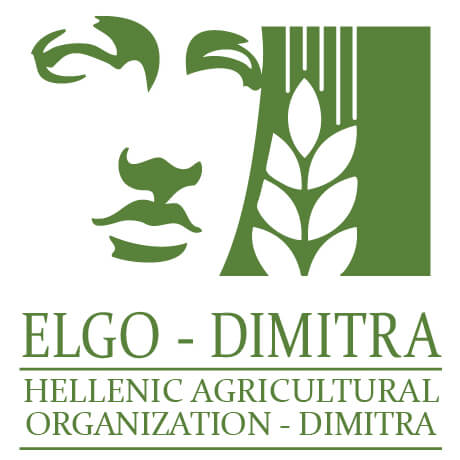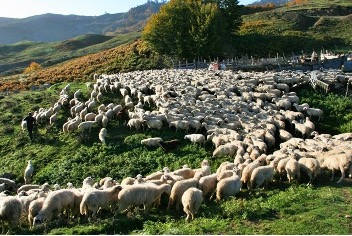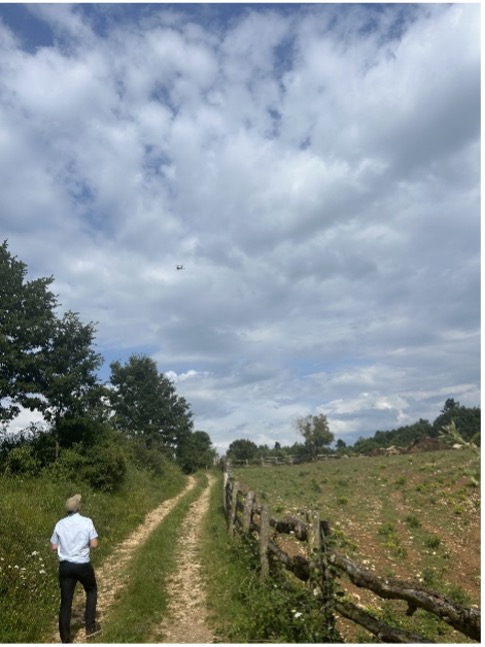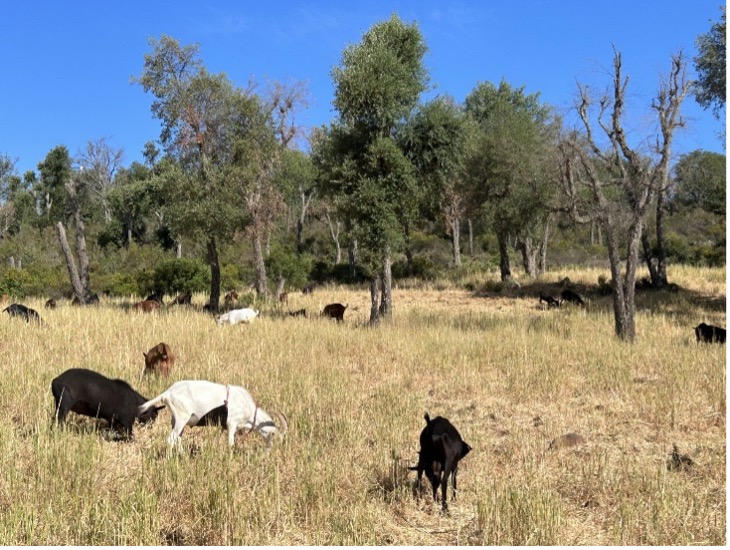
AGRICULTURAL RESEARCH

Pastoral livestock systems emerge as a solution for sustainability and innovation in the primary sector.

In an era where innovation is often equated with technology and urban life, few imagine that the mountain slopes of the Mediterranean conceal great potential, knowledge, and innovative practices. In places where people and herds still move in harmony with the rhythms of nature, a development model is being (re)discovered – one that blends culture, biodiversity, and the local economy.
“Extensive livestock farming is not just an agricultural practice. It’s a way of life, a form of culture, deeply linked to landscape preservation, sustainability, and social cohesion,” says Dr. Thanasis Ragkos, researcher at the Institute of Agricultural Economics Research of ELGO-DIMITRA. His work focuses on highlighting pastoral production not as an outdated tradition, but as a key pillar for revitalizing mountainous and disadvantaged areas across the Mediterranean.
Living Labs of Innovation
One of the tools highlighted by Dr. Ragos for co-creating innovative solutions that truly address the needs of people living and working in local communities is the concept of Living Labs. These are open processes in which livestock farmers, local communities, researchers, businesses, and local government actors actively participate. Through co-testing, co-validation, and co-demonstration of practices, living labs aim to develop solutions that genuinely respond to local needs.
A striking example, as he explains, involves the protection and differentiation of local products. In Italy, the “Adopt a Sheep” initiative invites people to financially support a livestock farmer by “adopting” a sheep, contributing to the preservation of traditional farming and rural landscapes. This idea, through exchanges among communities, was adopted in Croatia and adapted into “Adopt a Goat”, tailored to local conditions and traditions. These initiatives are part of the European research project PASTINNOVA ( https://pastinnova.eu/ ), which was coordinated by ELGO-DIMITRA over the past three years and concluded this year with the support of the PRIMA Foundation.  Throughout the project, the importance of extensive livestock farming for sustainability and rural development in the Mediterranean was highlighted. Similar efforts to promote local products have also been undertaken in Greece. As part of the TrueCheese project, in collaboration with ELGO-DIMITRA’s Institute of Veterinary Research, a cheese was created exclusively from the summer milk of transhumant sheep. Despite notable progress, the effort has yet to establish the product in the market. Dr Ragkos notes, “The greatest challenge is collaboration. For an initiative to thrive, we need a territorial approach that promotes cooperation among a wide range of local stakeholders – from producers to processors to local authorities and civil society – along with the livestock farmers themselves.”
Throughout the project, the importance of extensive livestock farming for sustainability and rural development in the Mediterranean was highlighted. Similar efforts to promote local products have also been undertaken in Greece. As part of the TrueCheese project, in collaboration with ELGO-DIMITRA’s Institute of Veterinary Research, a cheese was created exclusively from the summer milk of transhumant sheep. Despite notable progress, the effort has yet to establish the product in the market. Dr Ragkos notes, “The greatest challenge is collaboration. For an initiative to thrive, we need a territorial approach that promotes cooperation among a wide range of local stakeholders – from producers to processors to local authorities and civil society – along with the livestock farmers themselves.”
Empowering Vulnerable Groups
Special emphasis is placed on including social groups that are often left on the margins: women and young people. “Generational renewal is the most important challenge for European agriculture. Young people are not staying in the profession, not only because life as livestock farmers is difficult and often poorly paid, but also because we prevent them from innovating. The older generation ‘advises’ them to stick to the same methods, without giving them space to evolve,” explains Dr. Ragkos. “One young livestock farmer and postgraduate student told us he wants to continue raising a local breed – but in a different way. In his way, with more productive animals, allowing him more personal time. He envisions a form of pastoral livestock farming adapted to modern realities.”
The same applies to women livestock farmers, who often play a critical role in farm operations, yet lack visibility or decision-making power. In Spain, the network Ganaderas en Red was created to change that landscape, giving women a voice and a place in decision-making, and enabling equal participation in production.

Through collaborations and knowledge exchanges with women from different countries, a support network has been fostered – one that highlights women’s voices and experiences in livestock farming. “A good example is the collaboration between women from Turkey, Lebanon, and Spain. Women from the first two countries traveled to Spain, while joint online webinars were also held. At the same time, quantitative research was conducted within women’s cooperatives, and qualitative interviews took place with pastoralist families – interviewing grandmothers, mothers, and daughters – to understand how women’s involvement in agriculture and livestock farming evolves. These exchanges brought to light key aspects of women’s work in pastoral production and created a valuable tool for further empowerment,” says Dr. Ragkos.
Contact: Dr. Thanasis Ragkos, ELGO-DIMITRA, Athens, ragkos@elgo.gr